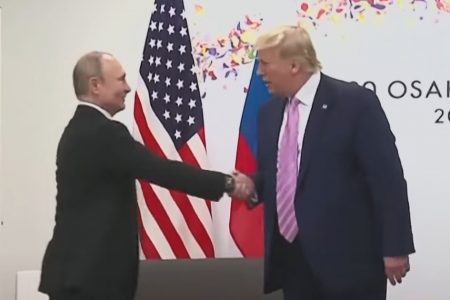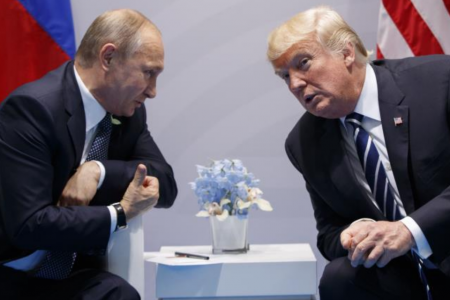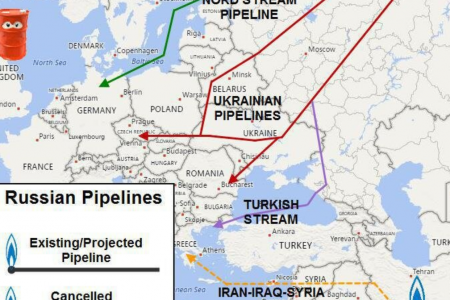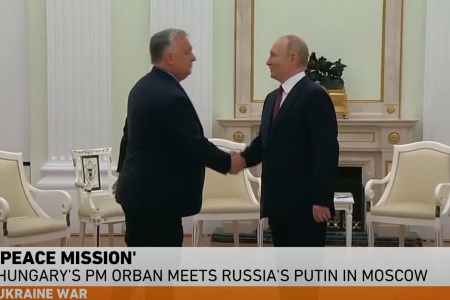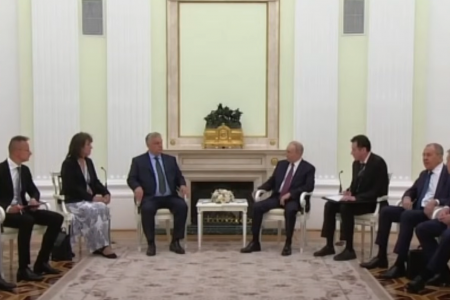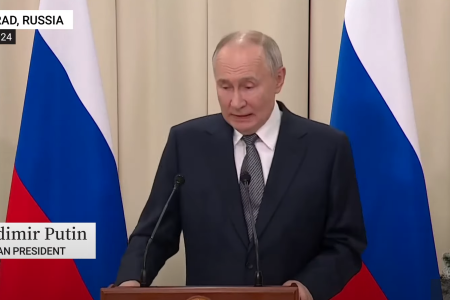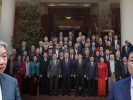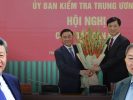
The European Parliament (EP) on Feb12 formally approved the EU-Vietnam Free Trade Agreement (EVFTA) despite Vietnam’s poor human rights record. The voting rate for EVFTA is: 401 votes for, 192 votes against, and 40 abstention.
About the Investment Protection Agreement (EVIPA), the EP vote: 407 support, 188 against and 53 abstention.
EVFTA is called by the EU “the most ambitious, detailed and modern agreement that the EU has ever signed with a developing country.” The EP stated that the trade agreement with Vietnam “could be suspended if there is a violation of human rights” in the future.
The EVFTA became effective immediately while the EVIPA requires approval from the parliaments of 27 countries in the EU.
After today’s vote, Chairman Bernd Lange of the EP’s International Trade Commission declared: “History shows that isolation does not change a country. That’s why EP voted in favor of this trade agreement with Vietnam, with which we strengthen the role of the EU in Vietnam and the region, ensuring that our voice is more weighty than before. It is important for issues that we disagree with, such as the role of press freedom or political freedom, and we also expand our participation to civil society. From now on, make sure our agreements are implemented in practice. “
On Feb 10, 68 NGOs issued a joint statement calling on European parliamentarians not to approve the EVFTA as the state of human rights and labor rights in Vietnam are still “worrisome.”

AFP said that 68 non-governmental organizations in the joint statement stated that the EVFTA could not meet the “urgent challenges currently facing the EU and Vietnam, such as inequality reduction and the fight against climate change …
According to these organizations, under the one-party regime, there is no guarantee that the Vietnamese government will respect human rights: Political and police repression is specifically aimed at human rights defenders, the environmentalists and all regime critics.”
At the same time, they require the EP to take a similar approach with Uzbekistan and Turkmenistan before, and postpone the agreement until the Vietnamese government meets the requirements of protecting human rights and rights of workers “in a specific and verifiable manner.”
The open letter suggested that the EU issue a parallel resolution, setting the conditions that Hanoi must meet, including the introduction of a roadmap to amend the harsh provisions of the Penal Code such as Articles 109, 116, 117, and 318 which are often used to suppress dissidents; the release of political prisoners including journalist Pham Chi Dung, who has been arrested after calling on the EU not to ratify the agreement.
According to Le Soir newspaper, the vote was very tough, the debate showed that the EP was deeply divided on the issue. The agreement was supported by many MPs because it opened up a big vision for the Vietnamese market of 100 million people, but others opposed because of the human rights situation and the absence of some social and environmental criteria.
The Green Party and the leftist group GUE earlier this week requested to postpone the vote but failed (this proposal was 121 votes in favor, 231 votes against, 12 absent).
It was a wonderful opportunity – Luxembourg’s MP Christophe Hansen of the PPE group was excited. He was pleased at the lifting of all customs duties.
Mr. Hansen said: Currently Vietnam imposes 20%-30% taxes on products imported from the EU, making our products less competitive than other countries. According to him, this is also an opportunity for Vietnam to develop.
However, the political situation in Vietnam makes some MPs dissatisfied: Vietnam has not yet ratified key conventions of the International Labor Organization (ILO), such as the Convention on Forced Labor. The state has also arrested a number of political opposition, with 128 currently imprisoned. Non-governmental organizations also denounce deforestation and land grabbing, far from the ecological goals of the European Commission.
European parliamentarians opposing a trade agreement
The results of the Voting Conference for EVFTA: 401 favored, 192 against, and 40 abstrain.

Accordingly, right after EVFTA takes effect, the EU will eliminate import duties on about 85.6% of tariff lines, equivalent to 70.3% of Vietnam’s exports to the EU. And after 07 years, all taxes will be eliminated. This particular benefit is especially meaningful when the EU is continuously one of the two largest export markets of Vietnam today!
On the sidelines of the agreement, Ms. Svenja Hahn – Member of European Parliament said that she supported EVFTA because this agreement provides more protection for the people, although Vietnam is still Communist.
“Vietnam is a Communist country not a democratic country. The EVFTA cannot help Vietnam become a democracy overnight. But the deal will boost Vietnam’s economic development, it will help people out of poverty and give them more rights and protection. The new labor code helps protect vulnerable groups. The union was accepted and then freedom of association. It will increase transparency in international oversight and is a great potential for better human rights protection. We have traded with Vietnam and the problem is not whether you want to trade or not, but about improving the situation. Let us cooperate vigorously with the whole of Asia, to reform the forces that believe in cooperating with the EU.”

Journalist Le Nguyen Huong Tra commented that there are still some concerns about the unintended effects of EVFTA on foreign direct investment (FDI) in Vietnam.
By the end of 2019, FDI from China to Vietnam increased sharply, with the newly registered capital from China in 11 months of 2019 reaching more than $2.28 billion; double to that in 2018.
According to analysts, part of the reason comes from the capital flow movement due to the US-China trade war, but the other reason is the change in China’s environmental policy. And EVFTA may also be one of the reasons, as China intends to exploit agreements that it currently does not benefit.
For example: ACTR tire factory in Tay Ninh province is one of the Chinese giant projects in Vietnam, worth $280 million just operated in November 2019. It is expected that 2.4 million sets of all-steel radial tires will be supplied to the market each year. After EVFTA took effect, taking advantage of the new legal environment for the European market, China can now compete directly with Europe’s largest physical tire manufacturer, Michelin.
But it remains to be seen today, when the Covid-19 pneumonia flu is threatening to destroy Chinese politics and economy, pushing China into a major recession disaster.
After EVFTA is implemented, Vietnam is the most attractive and cost-effective place for FDI in foreign direct investment compared to other countries.
Lawyer Le Cong Dinh in Ho Chi Minh City said that:
News of the EP approving EVFTA and EVIPA is really a bright spot that brings hope to the country amid worries about the Corona virus epidemic that is raging in China and around the world, for 5 reasons:

- 1 One is that the EVFTA forces the Vietnamese government to recognize workers’ right to form independent unions, so they are no longer a ruling party tool in the name of “the vanguard army of the proletariat.” The real proletariat in Vietnam will then have an organization that properly represents its rights, not the state’s fake trade unions.
- 2) The international commitments of the Vietnamese state will be the legal basis for EU countries to require Vietnam to respect human rights and civil rights if it does not want to lose the economic benefits that international trade and investment cooperation brings.
- 3) EVIPA will force the Vietnamese government to reform its legal system towards modernization and more adherence to international rules of law, if it does not want to be sued by European investors at arbitration agencies. international investment disputes.
- 4) EVFTA and EVIPA will help Vietnam reduce its dependence on economic relations with China, thereby gradually liberating the nation’s destiny from the metal bracelet that China is now attached to the head of the ruling party. Hope to escape China’s influence so there is an important premise to make.
- 5) Thanks to trade and investment, domestic enterprises will strengthen internal resources, thereby, in addition to increasing the national potential in the relations with neighboring countries, also creating conditions for enterprises to become significant power over the ruling party within the current political and economic totalitarian institutions.
The above five hopes are strong enough for us to firmly support the ratification of EVFTA and EVIPA.
It is necessary to see the future of the nation and democracy in the hands of Vietnamese businesses. The country has the potential to cope with future international challenges or not, the answer will belong to Vietnamese businesses.
As soon as the Agreement comes into effect, the EU will eliminate import duties on about 85.6% of tariff lines, equivalent to 70.3% of Vietnam’s exports to the EU. After 07 years from the date of entry into force of the Agreement, the EU will eliminate import duties on 99.2% of tariff lines, equivalent to 99.7% of Vietnam’s exports.
For the remaining 0.3% of exports, the EU commits to giving Vietnam a tariff quota with an import duty of 0%.
For EU exports, Vietnam committed to eliminate tariffs as soon as the Agreement comes into effect with 48.5% of tariff lines (accounting for 64.5% of import turnover).
Then, after 7 years, 91.8% of tariff lines equivalent to 97.1% of EU exports were removed from import taxes by Vietnam.
After 10 years, the tariff elimination rate is about 98.3% of the tariff lines (accounting for 99.8% of import turnover).
For the remaining 1.7% of the EU’s tariff lines, Vietnam will apply a roadmap to abolish import duties longer than 10 years or apply tariff quotas in accordance with WTO commitments.
The sectors that Vietnam committed to facilitate EU investors include a number of specialized services, financial services, telecommunications services, transportation services, distribution services.
The two sides also made commitments on national treatment in the field of investment, and discussed the content of dispute resolution between investors and the state.
Vietnam is increasingly trading and integrating with the world. The signed bilateral agreements are also part of that route, although the Communist Party, headed by General Secretary Nguyen Phu Trong, does not want an independent union to be established across the country to protect the rights of millions of workers.
However, as Vietnam is currently ruled by the dictatorial Communist Party which sets its interests higher than the rule of law, the international environment is also an opportunity for groups of people who have robbed the government since 1945 to become back to the civilized world.
Hoang Lan from Ha Noi – Thoibao.de(Translated)



